Photographs: Parth Sanyal/Reuters Amit Kumar
In the next few days, when the Minister for Railways, Dinesh Trivedi, presents his first Railway Budget in Parliament, he faces a historic opportunity and a daunting challenge to "depoliticise" the Railways by enforcing long overdue financial reform and modernisation.
Successive Railway ministers have brushed these issues aside, preferring to dole out populist promises that they cannot fulfil without drawing down scarce public resources.
In the last few years, widespread and increased recognition of the Railways' financial crisis has emerged.
Will the FM raise tax exemption limits? Will he manage to keep both industrialists and common people happy? To know all about Union Budget 2012-13, ...Why Railway modernisation needs to get on track
Photographs: Reuters
Fares have been stagnant for the past decade, while annual cash losses have exceeded Rs 30,000 crore (approximately $6.1 billion), resulting in poor levels of maintenance, failing safety record besides shortfalls in upgradation and expansion of the system.
Between 1970-71 and 2004-05, the share of railways in freight movement fell from 70 per cent to 39 per cent and in passenger movement from 36 per cent to 13 per cent despite being the third-largest rail network in the world.
Hidden fiscal transfers underpin its operations since the Railways does not have money to fund its capital fund and development fund.
Will the FM raise tax exemption limits? Will he manage to keep both industrialists and common people happy? To know all about Union Budget 2012-13, ...Why Railway modernisation needs to get on track
Photographs: Reuters
In the coming years, India must ensure that its growth drivers accelerate with a sustained focus on the transportation sector to augment the economy's needs. The 12th five-year plan has projected the need for $1 trillion in private investment for infrastructure.
Dinesh Trivedi has stated that he expects a need for investment worth $500 billion for the development of the railways.
A shift in cargo from roads to railways will have a positive impact on energy consumption patterns and increase our competitiveness.
Will the FM raise tax exemption limits? Will he manage to keep both industrialists and common people happy? To know all about Union Budget 2012-13, ...
Why Railway modernisation needs to get on track
Photographs: Reuters
But the sense of clarity and urgency expected of the Indian Railways in reforms and initiatives like public-private partnerships (PPP) in diesel locomotives and rolling stock factories as well as the modernisation of railway stations appears to have belied the crisis.
The Railways have to drive significant efficiencies -- strengthening tracks; building more wagons and locomotives; signals; remodelling stations and building freight terminals. These areas are capital intensive and need the participation of the private sector.
Even the Expert Group Report for Modernisation of Railways (February 2012) recognises the need to modernise rolling stock and develop PPP models for locomotive and coach manufacturing.
Will the FM raise tax exemption limits? Will he manage to keep both industrialists and common people happy? To know all about Union Budget 2012-13, ...Why Railway modernisation needs to get on track
Photographs: Reuters
The Railway Vision 2020 estimated a need for over 5,000 diesel and over 4,000 electric locomotives over the next decade.
An expansion of current manufacturing capacity would only meet half this need, so it envisioned a role for the private sector and PPPs.
In 2006, the Railways started a plan to build new diesel and electric locomotive factories under the PPP model and the initial proposal was to award contracts on a long-term concession basis.
Will the FM raise tax exemption limits? Will he manage to keep both industrialists and common people happy? To know all about Union Budget 2012-13, ...Why Railway modernisation needs to get on track
Photographs: Reuters
Concerns regarding risk and reward allocation and the viability of the financial model underpinning the project led to a reluctance of the private sector to bid.
To improve the financial viability of the project and to have an optimal allocation of risks and rewards, the project structure was changed with the Indian Railways subscribing to the equity along with the private sector partner.
The Railways planned to buy 1,000 diesel and 800 electric locomotives through these special purpose vehicles (SPVs) over 10 years and global majors like Siemens, GE, Alstom, Bombardier and Electro Motive Diesel evinced interest.
Will the FM raise tax exemption limits? Will he manage to keep both industrialists and common people happy? To know all about Union Budget 2012-13, ...Why Railway modernisation needs to get on track
Photographs: Reuters
Six years later there is little to show. After Cabinet approvals, the bid process for building wagons at Madhepura (electric) and Marhowra (diesel) has stagnated -- bid dates were changed over 10 times before being postponed indefinitely.
In part, the delay was due the Railways' keenness for a "perfect decision" – whether to go in for a PPP model at all – besides concerns over the use of land, financing norms, price variation clause and related aspects.
Some railway officials are talking about scrapping the entire PPP process for wagon and locomotive building. There is reportedly some anxiety that PPP projects will further drain its resources.
Will the FM raise tax exemption limits? Will he manage to keep both industrialists and common people happy? To know all about Union Budget 2012-13, ...Why Railway modernisation needs to get on track
Photographs: Reuters
Rumours of certain projects being awarded on a nomination basis are adding to the confusion.
These delays and mixed signals are raising the entry bar by piling up deal inertia not to forget significant stranded management time and cost in the preparatory work done by companies that were interested in the deals.
Between 2010 and 2011, dates for price bids were put off several times.
Will the FM raise tax exemption limits? Will he manage to keep both industrialists and common people happy? To know all about Union Budget 2012-13, ...Why Railway modernisation needs to get on track
Finally, the Railways announced an indefinite delay and promised to revert to interested parties "shortly". Around eight months have gone by since then, with no statement or explanation.
Will this silence help the Railways achieve its Vision 2020 goals? If the Railways is serious about modernisation, then after five years of continual engagement and spending significant amount of resources, it's time for it to conclude the ongoing tender processes in a transparent, balanced and timely manner.
This will instil confidence in the Railways' commitment and build momentum for projects in other areas — tracks, stations and high-speed trains.
TERI Energy Data Directory & Yearbook 2007; The Energy and Resources Institute, "Competition issues in regulated industries: Case of Indian transport sector Railways and Ports", 2009.
Will the FM raise tax exemption limits? Will he manage to keep both industrialists and common people happy? To know all about Union Budget 2012-13, Click here!
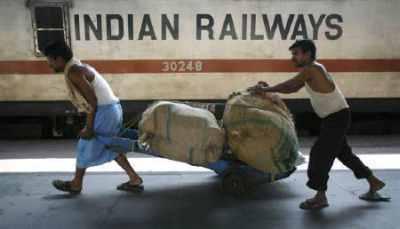

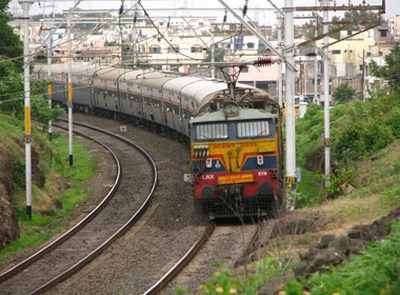

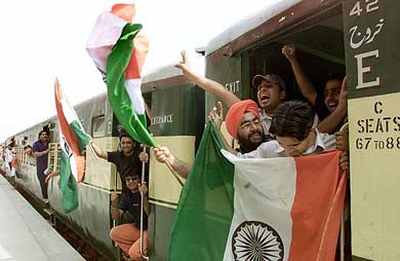
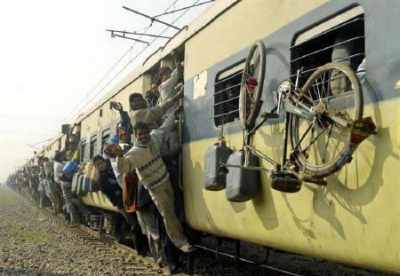
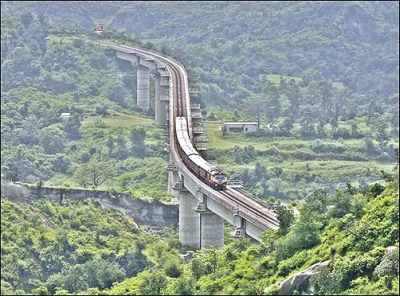
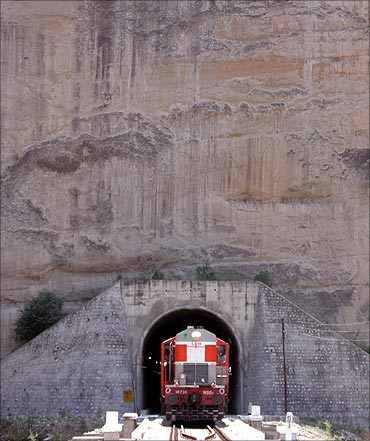
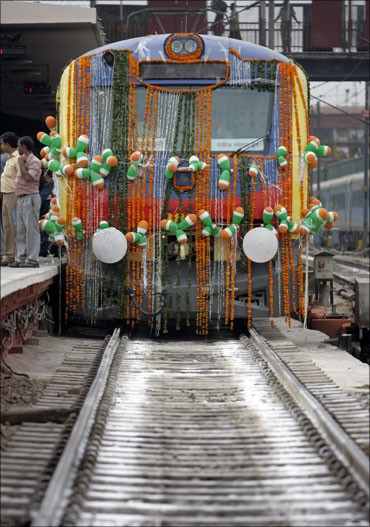

article